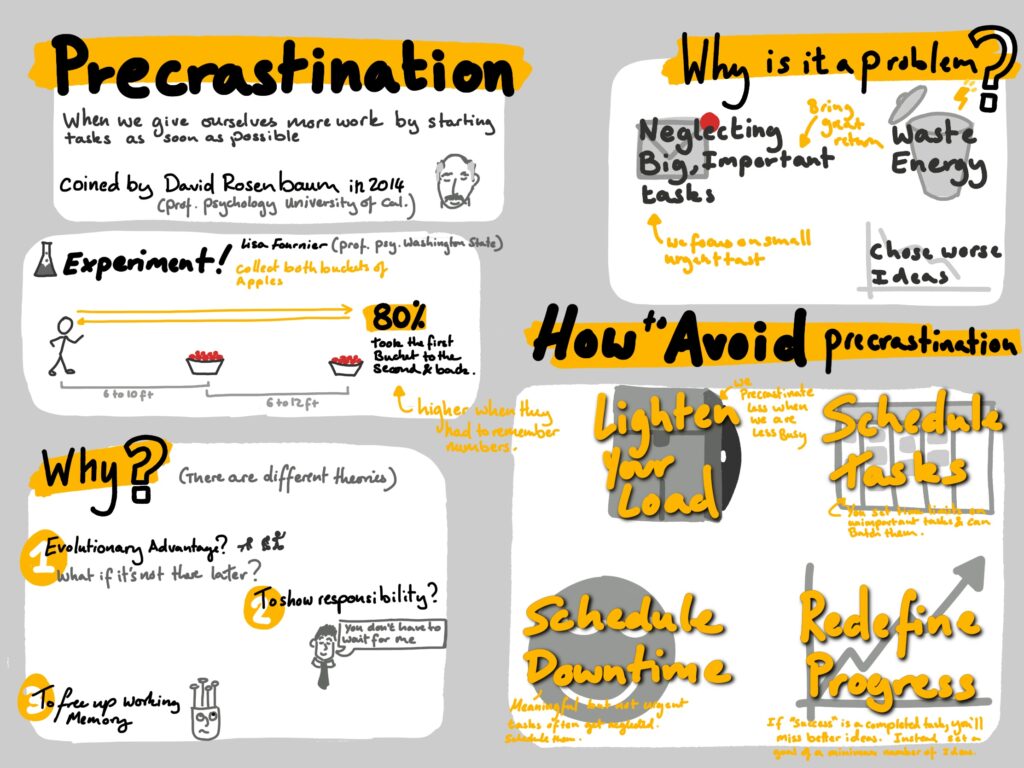
What is Precrastination?
Unlike procrastination when we put off tasks when we should just get them done, precrastination involves starting a task before the best moment.
If that sounds unbelievable then consider the example from a study in …
A group of people had to walk and pick up two heavy buckets and bring them back to a starting line. One bucket was placed further away than the other. The logical thing would have been to go to the further away bucket and then bring it back to the first, collect that one and bring both back to the starting line. However, 80% collected the first bucket on their way to the second buck causing them to exert substantially more energy.
What are the negative effects of precrastination?
There are three negative side effects from precrastination.
- Wasted energy – by doing tasks before we need to, we can waste energy spending more time and mental energy on a task.
- Neglecting important but not urgent – by jumping to task as soon as they come in, we fail to make progress on bigger issues.
- Chasing worse ideas – precrastination also tends to follow a lack of evaluation of ideas and project. This causes us to start working immediately and so we go down bad paths focusing on worse idea rather than the best ones.
In contrast, avoiding precrastination allows us to focus on doing ore important tasks and doing them more efficiently.
What causes precrastination
Although there’s no definitive answer, precrastination may have several causes. We can group these into social and mental.
From a social side, appearing to do work and work hard reflects better on the individual than appearing lazy. We form stronger bonds with the person who does work rather than finds shortcuts (even if those help everyone).
From a mental perspective, doing a task now reduces the thinking we have to do. This can be a way to ensure something gets done and isn’t forgotten and also avoids the risk of not being able to complete the task later (whether the risk is real or not).
This final point seems to have some truth as when we are more mentally overloaded, we tend to procrastinate more.
How you can avoid precrastination
As precrastination appears to be heavily tied to how much is on our minds, reducing our cognitive load can cut precrastination dramatically.
This may mean having fewer tasks on our plate at one time, but it also means taking good breaks from time to time too and relaxing properly when we aren’t working.
Another approach is to schedule times to tackle certain tasks or “time blocking” as it’s sometimes called. This helps us to know that we have time for the urgent task and introduces blocks to work on the important tasks. It can also help us escape being at someone else’s beck and call and give us the confidence of what we should work on at any moment.
To see a more practical example, take a look at how I planned my ideal week.
Precrastionors, you’re already on your road to recovery.
If you’re a precrastinator then have no fear. Realising your tendency is a key first step on your journey to recovery.
Adding some blocks of time in your day for certain tasks including downtime will take you a long way too.
If you have developed some techniques to help with precrastination, I’d love it if you shared them in the comments below.

Leave a Reply